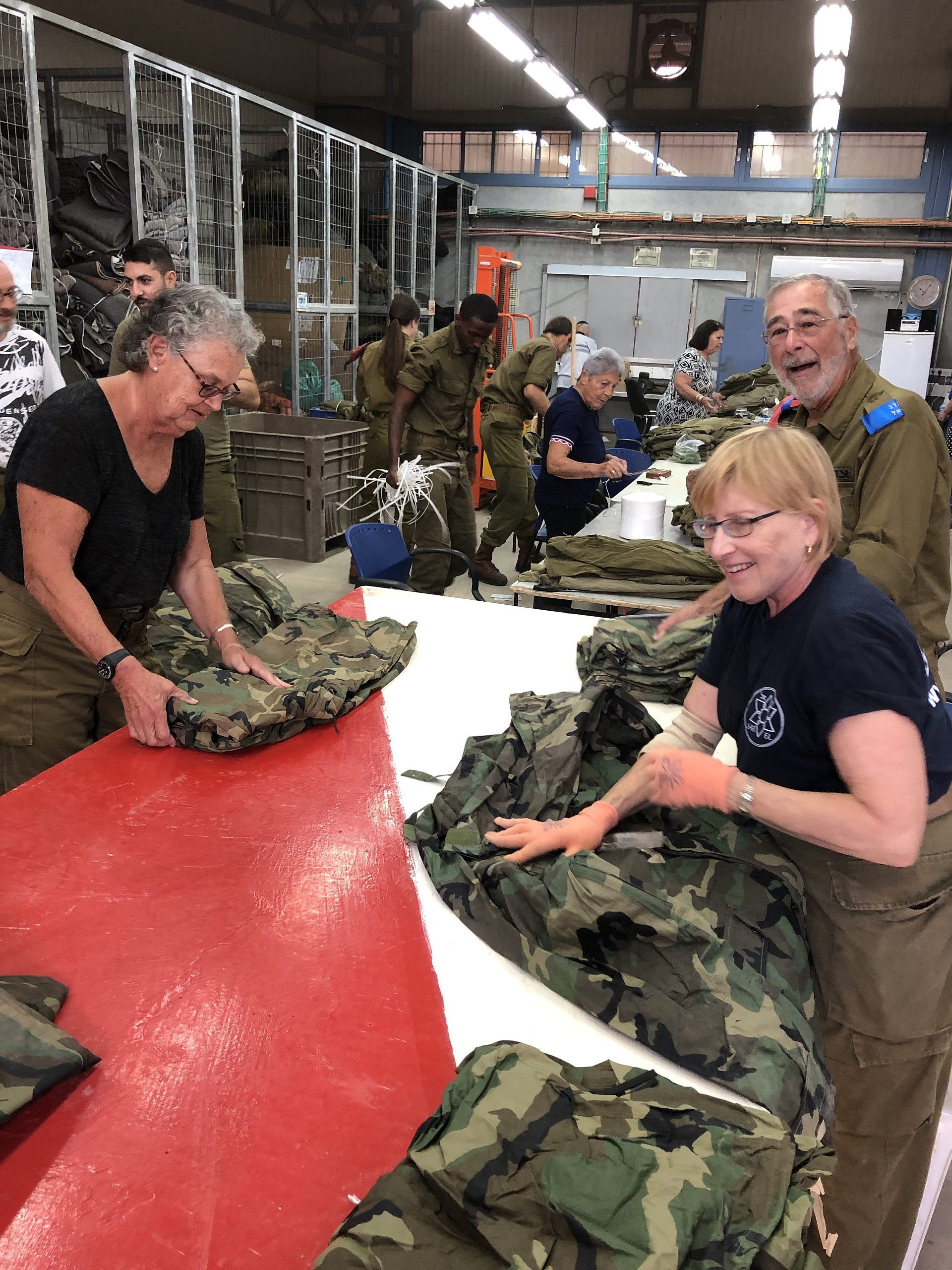The numbers are astonishing. More Jews were slaughtered in one day that at any time since the Holocaust—more than 1,400 Jews, mostly civilians.
But that is just a number. What is most painful are the pictures. They are killing Jewish babies again. And those pictures will stick in my mind forever. A dead baby in its bed, covered with its own blood. Even more impactful—a bloody pacifier on top of a changing table. No need to show what happened to its owner.
We feel pain, anger and frustration. We thought that “Never Again” really meant “Never Again.” But we were wrong. Cossacks were replaced by Nazis. And now Nazis were replaced by Hamas/ISIS terrorists whose goal is simply to kill Jews.
How can Diaspora Jews respond to this historic massacre? How can we channel our anger and frustration into a course of action that can help our brothers and sisters in Israel respond to this level of hate and violence?
Many people are making donations to worthy pro-Israel causes and that is, of course, a good thing. For me, writing a bigger check just doesn’t satisfy me. I want to do something more personal than simply donate money to show my support for Israel.
Many of you may remember another seminal event in Israel’s history involving a massacre of Jews. In 2002, Palestinian terrorists broke into the Park Hotel in Netanya, Israel, in the midst of preparations for a mass Passover seder. The terrorists slaughtered the women and children preparing for the seder. Thirty civilians were killed and 140 injured. I was so angry over this event and searched for a way to channel my anger.
My search led me to start volunteering on Israel Defense Forces bases. I discovered an entire society of Diaspora Jews who volunteer their time for one, two, or three weeks at a time. And I learned that this was a popular way for pro-Israel people outside of Israel to show their support for Israel. Since this program was created in 1983, more than 160,000 people have participated in this program.
The volunteers are not in the Israeli army. They are civilian volunteers working on military bases. They consist of men and women from all walks of life, and include both Jews and non-Jews. Military experience is not a prerequisite; neither is knowledge of Hebrew. All that is required is a willingness to get your hands dirty performing manual labor.
The benefits the volunteers bring to the IDF are two-fold. The first is the work performed, mostly logistics support for the IDF in packing combat gear, medical supplies, food, etc., for the soldiers. This frees up Israeli soldiers for more serious duties. And it also enables Israel to call up fewer reservists.
The second benefit is even more important than the first. And that is the morale boost it brings to the IDF soldiers to see volunteers come from all over the world to support them and their country.
I personally witnessed an example of that morale boost. In the summer of 2006, I was assigned to a paratrooper reservist base near Rehovot. I arrived on that base at the very end of the Second Lebanon War. Israeli soldiers were returning from the fighting front in Lebanon to drop off their equipment, rest for a few days and then go home. On the very first evening on the base, I had dinner sitting at a table with a platoon of soldiers who had just returned from three weeks of intense fighting in the Lebanese mountains.

These soldiers were tired. In fact, they were more than tired; they were exhausted. I could tell by how they sat at the table. They were slumped over their food plates, barely eating, not talking with their neighbors, and in their eyes, I could see how down they were.
I happened to sit next to their platoon sergeant, a young man named Danny. He was the platoon’s best English speaker, so he engaged me in conversation. At one point, he gestured towards the other volunteers in the mess hall and asked: “What are you people doing on our base?” I responded that we were volunteers from around the world who had come to Israel to show our support by volunteering. Danny turned to his platoon and translated my response into Hebrew.
All of a sudden, these exhausted, slumped-over soldiers straightened up and began speaking in very fast and excited Hebrew to each other (which I could not understand). I turned to Danny and asked him: “What are they saying?” Danny responded: “They are saying: Hearing this is sweeter than breathing the air.” This shows how much our presence boosted the morale of the Israeli soldiers.
Volunteering also brings benefits to the volunteers. Aside from receiving the thanks of many soldiers working side by side with them, the volunteers come away from this experience with a sense of having made a difference. We also develop an indescribable feeling of camaraderie with the soldiers and volunteers we work alongside with.
On one of my bases, at the end of three weeks of hard work, the base commander provided each of us with a precious gift in thanks. It was a pocket-sized Hebrew Bible of the type given to all new soldiers upon completing their basic training. And on the inside cover, he had written the following:
“Though an army encamp against me, my heart shall not fear; though war arise against me, yet I will be confident.” (Psalm 27:3)
“Thank you for supporting our confidence. Thank you for those three weeks of hard work, not only for us but for all of the people of Israel. We are proud that you have been a part of us.”
I will cherish this Bible for the rest of my life.
Americans interested in helping can do so through Volunteers for Israel. Those outside the United States can volunteer through Sar-el.


























